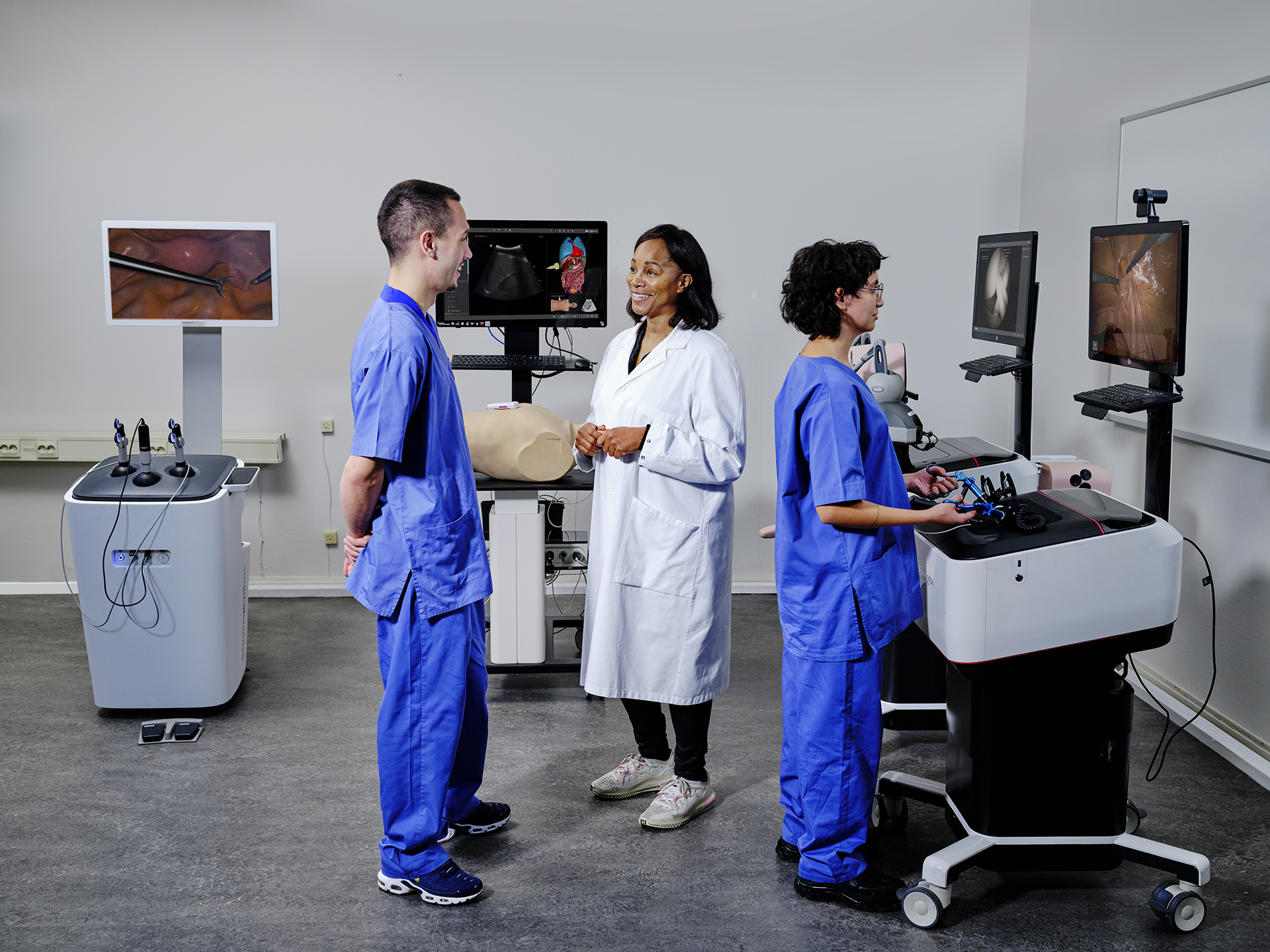Spinal Surgery Training Simulation
The Spine Mentor is a cutting-edge virtual reality training simulator designed specifically for minimally invasive spine surgery. By combining realistic materials, a physical spine model, and advanced virtual reality capabilities, the Spine Mentor offers unparalleled accuracy and realism in training. This exceptional simulator is ideal for anaesthesiologists, pain medicine surgeons, and industry learners in medical education institutions. With the lifelike anatomy and detailed on-screen procedures, the Spine Mentor allows users to practice in a safe environment, building skills and confidence through repetition. Experience the future of minimally invasive spine surgery training with the Spine Mentor.
The Spine Mentor offers a range of impressive features designed to enhance the training experience. With safe imaging training, users can access real-time fluoroscopic images and C-arm control panels in a radiation-free environment. The simulator provides a realistic tactile experience through the use of true-to-life synthetic soft tissues, loss of resistance techniques, and dynamic haptics. Additionally, the Spine Mentor emphasizes educational orientation, promoting self-learning through dynamic instructions, didactic tools, guidance, and meaningful performance metrics to track progress.
The Spine Mentor offers users an array of benefits, including a 3D-printed spine for accurate palpation, a highly realistic puncture pad for needle penetration practice, and a real-time simulated fluoroscopic image displaying the entire spine. Users can also manipulate a virtual C-arm throughout the procedure and c dynamic haptics simulating anatomic obstacles. Additionally, the Spine Mentor provides an evaluation report with performance metrics to help users track their progress and improve their skills.
Book
A Virtual Demo
The Spine Mentor offers a range of comprehensive modules designed to provide targeted training for specific procedures. In the Spinal Cord Stimulation (SCS) module, users can practice implementing up to 4 electrodes in the epidural space across 4 cases with varying anatomical structures, all while utilizing the loss of resistance technique and dynamic force feedback. The Lumbar Puncture module allows trainees to practice the safe insertion of a spinal needle into the subarachnoid space, position the patient correctly in a lateral recumbent position, and accurately track needle stylet for periodic CSF flow checks.
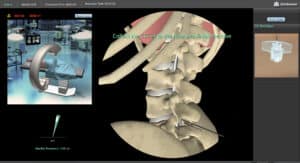
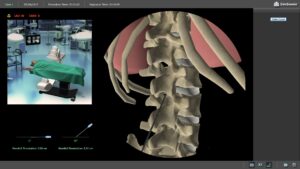
White Jr, W. W., & Jung, M. J. (2022). Three-Dimensional Virtual Reality Spinal Cord Stimulator Training Improves Trainee Procedural Confidence and Performance. Neuromodulation: Technology at the Neural Interface.
Freundt, P., Nourkami-Tutdibi, N., Tutdibi, E., Janzing, P., von Ostrowski, T., Langer, M., … & Steinhard, J. (2023). Controlled Prospective Study on the Use of Systematic Simulator-Based Training with a Virtual, Moving Fetus for Learning Second-Trimester Scan: FESIM III. Ultraschall in der Medizin-European Journal of Ultrasound.
Jozsa, F., Davids, J., Horsfall, H. L., & Marcus, H. J. (2022). Simulation in Operative Neurosurgery: Past, Present, and Future. In Learning and Career Development in Neurosurgery: Values-Based Medical Education (pp. 337-347). Cham: Springer International Publishing.

At Phantasim, we offer an aftercare package to ensure our friendly support team can offer assistance should you incur an issue with your simulator or modules. Phantasim are based in Western Australia, however your aftercare package allows us to remotely access your simulator via satellite and resolve any issues remotely. Should your simulator require hands-on assessment, our support team will visit your facility anywhere within Australia or New Zealand to appraise your simulator and provide a solution.

Whether you’re in Australia or New Zealand, our team at Phantasim are your surgical simulation partners. Our dedicated team handle distribution, maintenance, and ongoing aftercare for simulation units and modules.
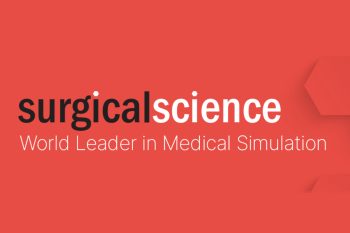
Phantasim are proudly partnered with Surgical Science, who manufacture the simulation units which support the education and growth of medical professionals across the globe.
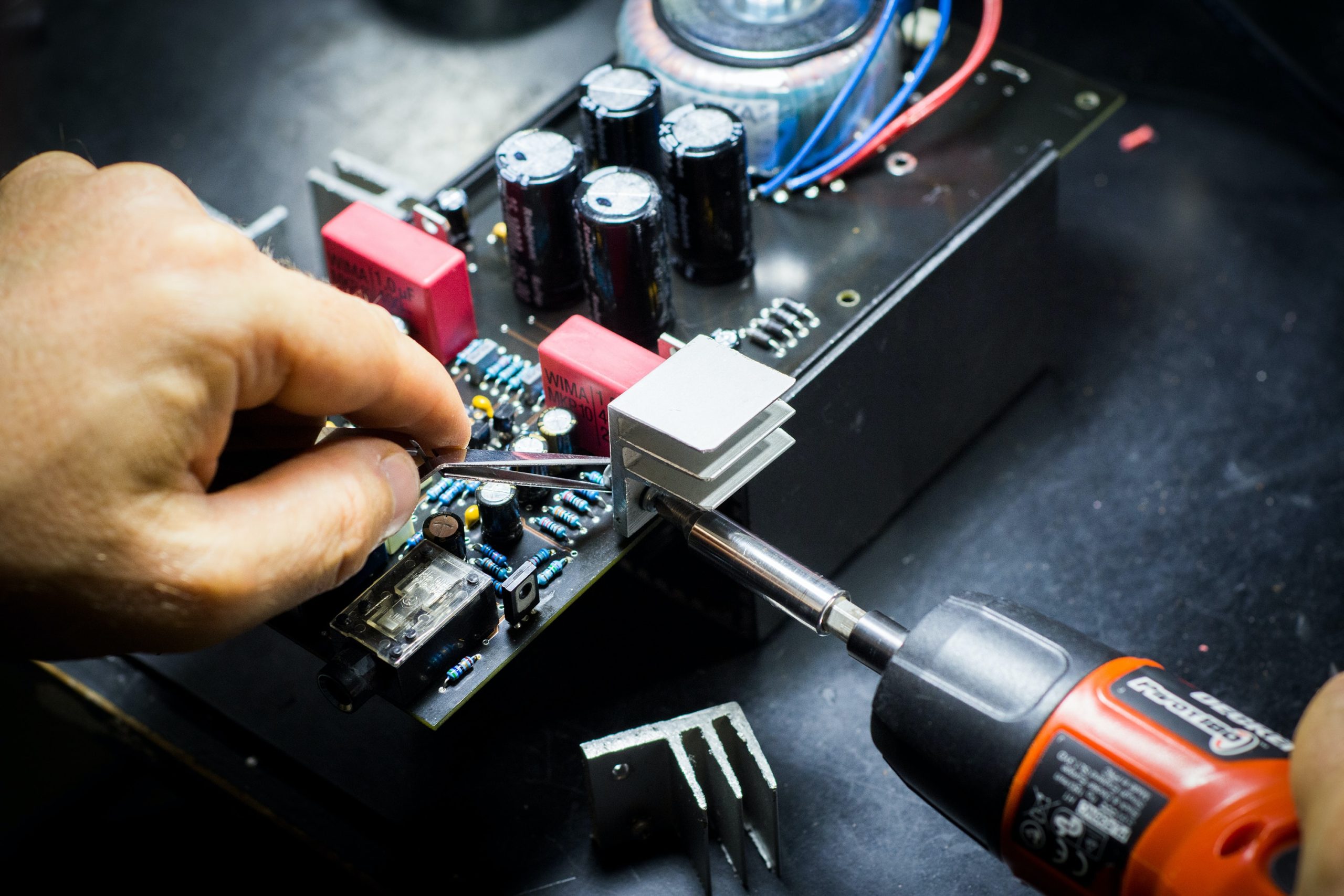
Our aftercare team at Phantasim are just a phone call away. Once you’ve received your simulator, we will visit your facility for installation and analysis as well as provide ongoing aftercare and support.

Each simulator has remote access capabilities, allowing our team to assess any issues or irregular activities from any location. Alternatively, our support team can visit your facility as part of your aftercare package.
Barry T. Katzen, M.D., FACR, FACC, FSIR
Director
Cardiovascular Center and department of Internal Medicine, Sankt Katharinen, Frankfurt Germany
“
We have been very interested in improving patient care through learning and essentially rehearsing the procedures before we treat the patients.
Horst Sievert MD PhD
Director
Cardiovascular Center and department of Internal Medicine, Sankt Katharinen, Frankfurt Germany
“
Simulators will have a place in the future to plan a procedure.
Prof. Michael Glikson
Director of Electrophysiology and Pacing
Sheba Medical Center, Israel
“
I remember my days as a new intern….the first cases I performed were very difficult and it was a scary experience, since it takes between 10-20 procedures until you really feel that you are proficient.
Dr Thomas Bossmar, MD, PhD
Consultant at the Women's Clinic and Practicum
SuS in Lund
“
I want to emphatically state that simulated laparoscopic training with LapSim should be a cornerstone of surgeon training and absolutely contributes to patient safety.
Clinical simulation training allows students in the medical field to practice their skills in an authentic, safe, simulation environment. Simulation-based training provides a great opportunity for students to increase their knowledge in both technical and non-technical procedures, with built-in software providing feedback and guidance along the way. Students can practice, learn, and increase their surgical skills with peace of mind knowing they’re safely practicing without risking the life of a live patient.
Absolutely. Simulation training allows medical professionals to practice their skills via virtual reality without risking the safety of a live patient. They also have the benefit of reducing the demand on supervision time which leads to more skilled and confident medical professionals. Whilst using the simulator, real time guidance and feedback is provided with the software so any mistakes made are recognised instantly.
Universities throughout Australia and New Zealand would greatly benefit from investing in a surgical simulator for their students studying in the medical industry. This advanced tool allows students to gain the knowledge and skills necessary to move into their preferred field with both confidence and competence.
A human patient simulator typically ranges in price from $10,000 to $100,000 depending on the type, brand, features, and included support services.
